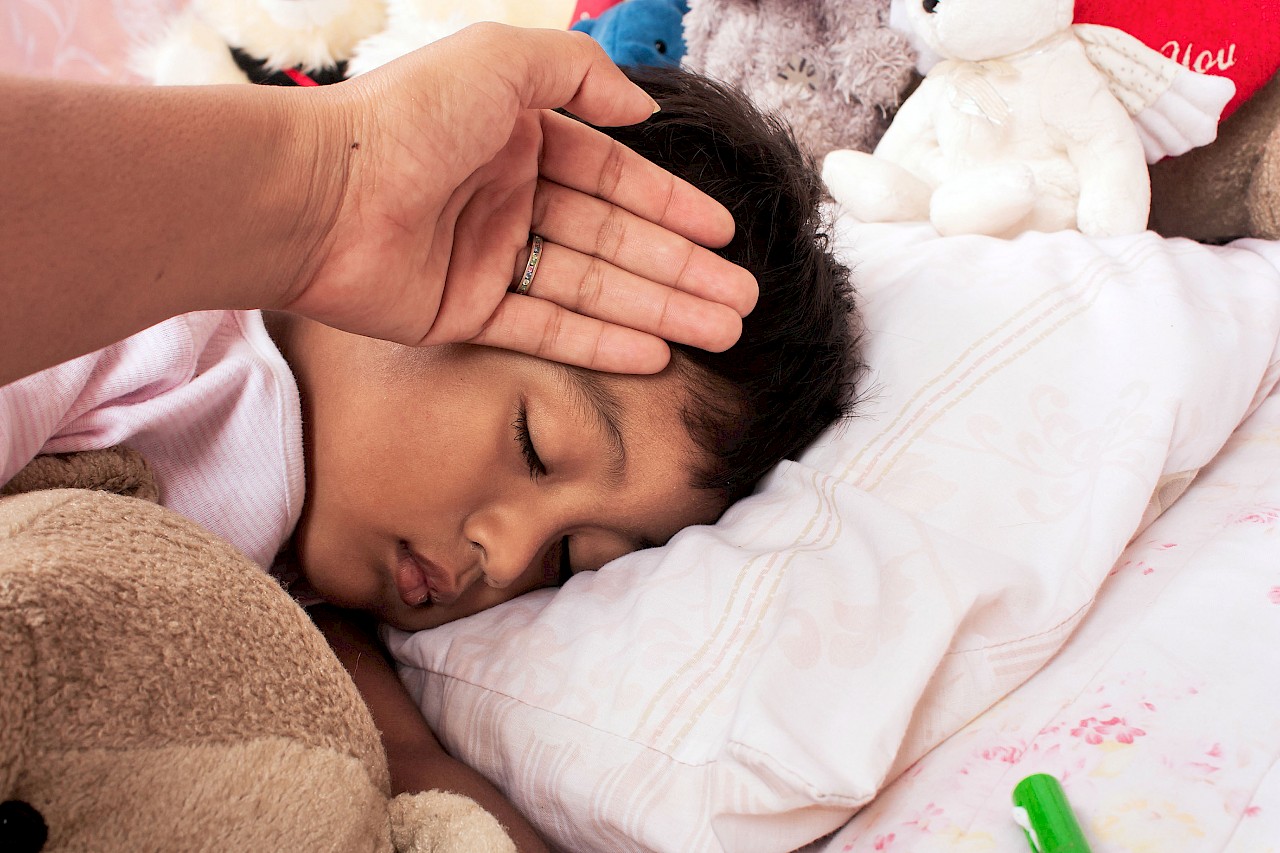November 2018
As parents, we all want to do right by our children, but sometimes it’s not clear which decisions are the right decisions—and finding a balance between personal and professional responsibilities can complicate things. Figuring out when to keep kids home from school because they’re sick can be one of these situations.
SYMPTOMS FOR KEEPING KIDS HOME
School districts and daycare centers typically restrict children from attending when they’ve had certain symptoms. In many families both parents work, so it’s important make sure you’re reachable and to have a backup plan when your child is sick and must stay home from school.
The Academy of Pediatrics recommends exclusion from school/daycare for the following symptoms:
-
- Fever above 101 degrees Fahrenheit (Children can return to school when their temperature remains lower than 101 degrees without using fever-reducing medicines.)
- Diarrhea or bloody, mucus-filled stools.
- Vomiting twice or more during the previous 24 hours, unless vomiting is determined to be non-infectious and is not causing dehydration.
- Abdominal pain that continues for more than two hours or if it’s severe
- Mouth sores with drooling
- Rash with fever
- Skin sores that are weeping and are on an exposed body surface that cannot be covered with waterproof dressing.
- Illness that cause children to be irritable or very fatigued, make it difficult to breathe or include a quickly spreading rash
Specific conditions that should keep children home from school include:
-
- Strep throat (diagnosed by a medical provider). Children should stay home until they’ve had two doses of appropriate antibiotic treatment 12 hours apart.
- Head lice, scabies, ringworm. Children should stay home until after the first treatment.
- Chickenpox (Varicella). Children should stay home until all lesions have dried or crusted (usually six days after the onset of rash) and no new lesions have showed for at least 24 hours.
- Whooping Cough (Pertussis). Children should stay home until they’ve had five days of appropriate antibiotic treatment.
- Hand, foot and mouth disease. Children can return to school once they have no more fevers, drooling, or open blisters.
- Pink eye. Children can return to school 24 hours after beginning treatment if they feel well otherwise and have no fever.
- Pinworms. Children can return to school after the first dose of medicine, as long as proper hand washing is followed at school.
EFFECTS ON ACADEMICS
Unless your child is experiencing symptoms like those above, it’s best to send your child to school. If we kept our kids home from school/daycare with every illness, they’d miss way too much school. According attendanceworks.org, missing only a couple days of school a month can have serious negative consequences. “Chronic absence—missing 10 percent or more of school days due to absence for any reason—excused, unexcused absences and suspensions, can translate into third-graders unable to master reading, sixth-graders failing subjects and ninth-graders dropping out of high school,” they said.
PREVENTION IS THE BEST CURE
Especially during their first year of daycare or school, young children get sick a lot. In fact, children younger than two years old often get as many as 8-10 colds a year. The good news is that the number of respiratory illnesses decreases after that because exposure to germs helps develop immunity.
The best way to reduce how often children get sick is to keep children up-to-date on vaccines, including flu vaccine, and to teach them about frequent hand-washing, especially after using the potty and before mealtimes.
As long as children have no fever and feel well enough to comfortably participate, they can attend school/daycare with the following symptoms:
-
- Common colds
- Runny nose
- Mild cough
- Watery eye discharge
- Rash without a fever or behavioral changes and not rapidly spreading
- Molluscum contagiosum (viral infection that causes a wart-like skin rash)
You can always call your medical provider for an appointment to check whether your child is ready to go back to school.
Dr. Johnston is a pediatrician at MCHC Health Centers—a local, non-profit, federally qualified health center offering medical, dental and behavioral health care to people in Lake and Mendocino Counties.

 MyChart Login
MyChart Login

